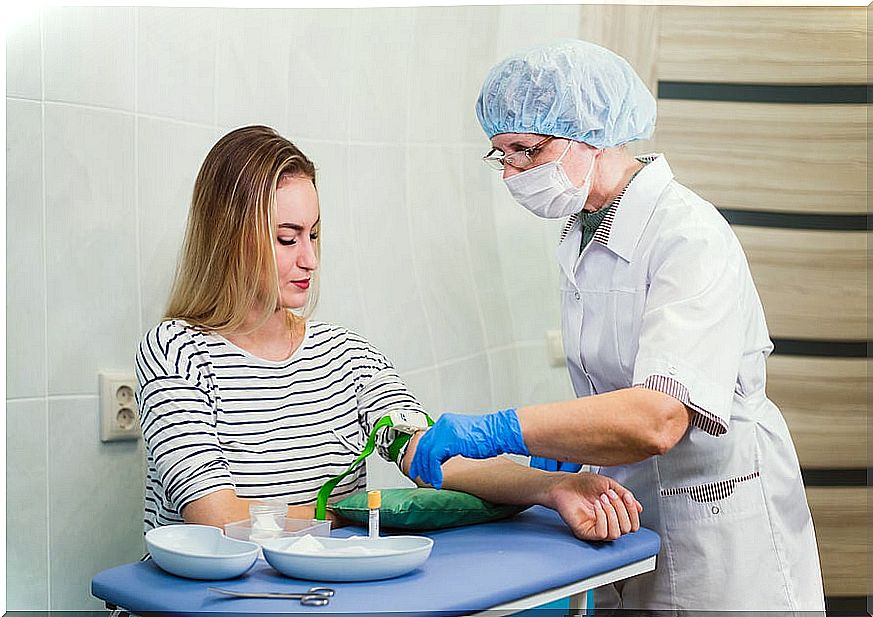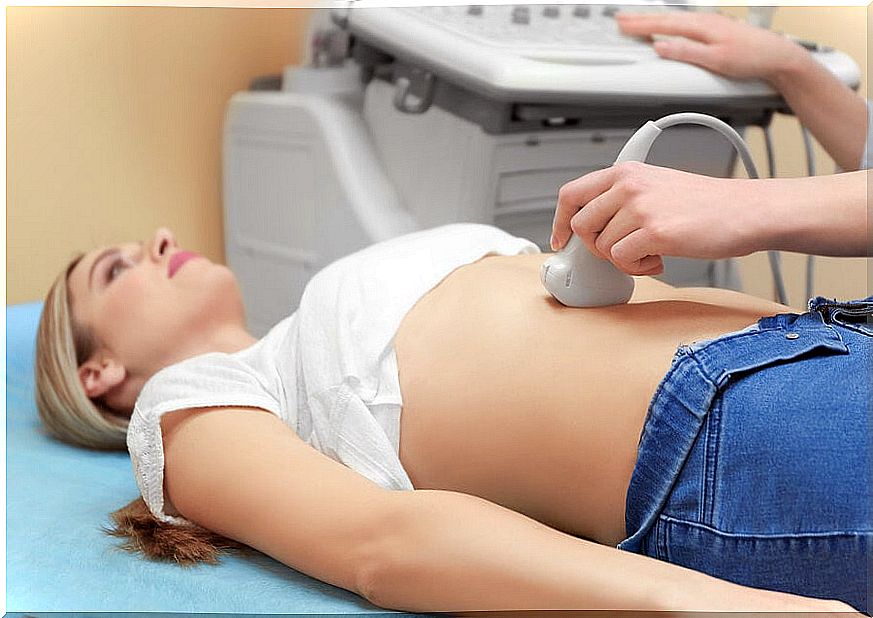Prenatal Exams During The First Trimester Of Pregnancy

Prenatal exams are a series of studies that the doctor indicates to evaluate the health status of both the mother and the baby. Depending on the stage of pregnancy, they may have one main goal or another. Next we will tell you what the objective of the first quarter exams is.
During pregnancy, prenatal exams also help detect problems and, therefore, make diagnoses. Through these tests, it is possible to detect any condition or pathology that could cause a disorder or deformation to the baby.
It should be noted that routine prenatal exams may be suggested during the first trimester of pregnancy. Its purpose is to determine certain risks, such as anemia. In addition to a physical exam, a pelvic ultrasound, gynecological, urine, and blood tests are recommended.
Major First Trimester Prenatal Exams
Prenatal exams during the first trimester of pregnancy will depend on the physical examination of the mother and her medical history. In the first consultation, your doctor will do an exam that includes:
Ultrasound
By means of this technique the pregnancy, the health of the fetus, the state of the womb and the correct implantation of the embryo are confirmed. In addition, with this information the treating doctor will be able to plan the pregnancy, including the possible date of delivery.
The new ultrasound equipment is highly accurate and allows even the heartbeat of the fetus to be heard.

Lastly, performing an ultrasound during the first three months or 12 weeks of pregnancy helps detect Down syndrome and heart disease; hence its recognized importance.
Control of blood pressure
Whether the pregnant woman has suffered from high blood pressure or not, in all consultations throughout the pregnancy the doctor will take the pressure. In this way, preeclampsia, a condition that can cause damage to the kidneys and bladder, can be ruled out and prevented; In extreme cases, it can lead to the loss of the baby.
Blood and urine tests
Among what are considered routine prenatal exams during the first trimester of pregnancy are urine and blood tests. In urine, infections that can affect kidney health and cause other pathologies are ruled out.
Meanwhile, within the branch of evaluations to detect infections are tests for syphilis, toxoplasmosis, HIV and hepatitis; a platelet and red blood cell count is also done.
Another aspect that is determined with routine tests is the Rh factor; it is an element that can cause an incompatibility that can be prevented with proper treatment.
Other recommended tests
Depending on the age of the pregnant woman, the doctor may order tests to rule out chromosomal or genetic abnormalities. It is not mandatory to do them; However, if the woman believes that she is at risk, it is better that she speak with the doctor and clear up any doubts. Some of these tests can be:
Carrier testing for genetic conditions
Through blood or saliva tests, specialists can discover if the pregnant woman is a carrier of a genetic disease, even if she does not suffer from it.
This means that it has a gene that can cause some diseases in the fetus. Some of these conditions are: propensity for cystic fibrosis, blood problems, or muscle atrophy.

DNA testing
It consists of an examination in the blood that allows to determine if in the DNA of the child there are risks of suffering some genetic condition. It is generally recommended if the ultrasound shows abnormal growth or another critical circumstance indicating, for example, Down syndrome.
Other evaluations
In addition to those mentioned, other tests to consider may be the Pap smear or cervical cytology and cultures for chlamydia or gonorrhea, if they have not been performed in recent months. A glucose test is also advisable if the medical history indicates the possibility of gestational diabetes.
In summary, prenatal exams during the first trimester of pregnancy are the starting point for a healthy and smooth pregnancy. Take your doctor’s recommendations into consideration and enjoy this wonderful phase of a woman’s life to the fullest.










